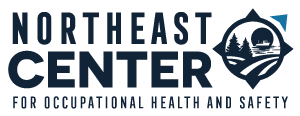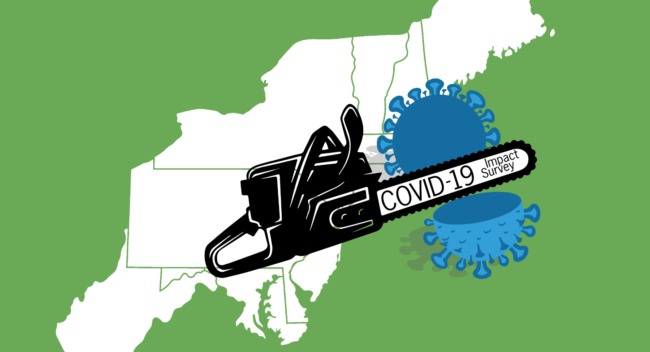In the interest of understanding the impact of COVID-19 on loggers in the Northeast region, the Northeast Center developed and distributed surveys to loggers in six states. Of the 3,652 surveys mailed, 484 were returned, for an overall response rate of 13.3%. Results from the survey will be used to inform policymakers, medical institutions and logging stakeholders on how to better assist this essential workforce in the future. Findings are detailed in a recently released 21-page report entitled “Northeast Logger Executive Summary: The impact of COVID-19 on loggers in the Northeastern United States.”
The COVID-19 impact survey responses revealed that the pandemic has had a significant impact on Northeast loggers. The impact was exacerbated—and in the case of Maine loggers, eclipsed—by a paper mill explosion in Jay, Maine, in April 2020.
Despite their remote work locations, loggers were not able to escape the highly infectious coronavirus. Approximately 4% of the 484 survey respondents said they tested positive for COVID-19, and six out of 10 loggers knew two or more people who tested positive. As of March 31, 2021, positivity rates for this region varied from 3.9% to 9.2%. Loggers cited the Centers for Disease Control and Prevention (CDC) and state departments of health (DOH), their healthcare provider, and TV/radio as top sources for reliable health information.
Loggers reported significant increases in stress in their communities, based on observing higher incidence of anxiety, depression, alcohol/drug use, and physical/verbal abuse. Loggers also indicated that they had relatively strong emotional and social supports, demonstrating resilience in the face of adversity.
In addition to affecting loggers’ physical health, the pandemic has had a significant financial impact, as many loggers were unable to work while logging companies stood idle. The one-two punch of the pandemic-related shutdown with the explosion at a major paper mill in Maine sent a number of logging companies reeling. Interestingly, the responses to a set of financial well-being questions in the survey indicated that loggers fared better than average, yet the comments of many loggers contrasted with this comparatively more positive outlook on financial well-being.
The survey consisted of six sections containing a total of 61 questions, which were derived from two sources—the Northeast Center’s “Farmworker Needs Assessment: The impact of COVID-19 on farmworker populations in the Northeastern United States” and the Maine logger health and safety study surveys. The Northeast Center worked with partners across the region to bring this survey to fruition. The survey was mailed in late November/mid-December 2020 to 3,652 loggers.


